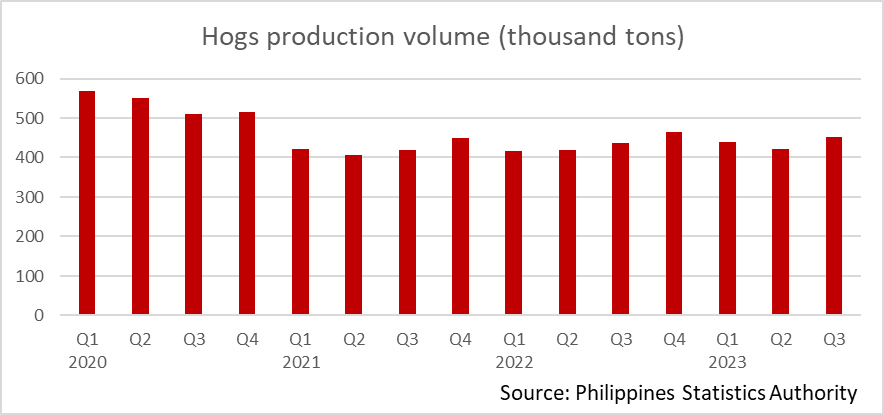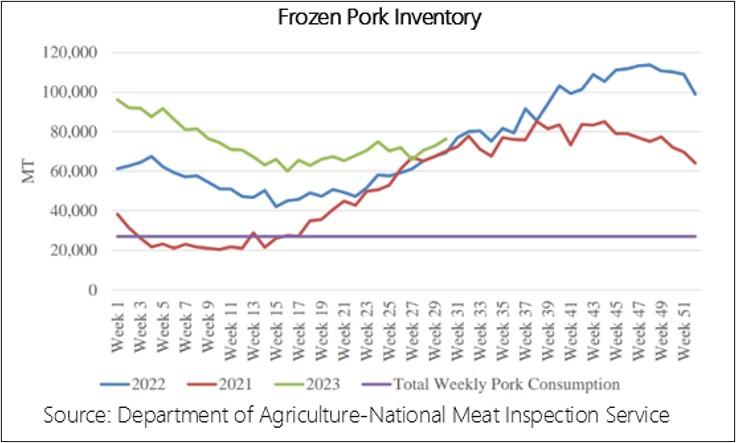ASF is still spreading in Philippines and the Department of Agriculture (DA) urges local government units (LGUs) to declare states of calamities to have access to the budget to cope with the spread of ASF.
According to the example given by DA Undersecretary, the province of Nueva Vizcaya has declared a state of calamity on October 16th after the announcement of almost 1,300 hogs tested positive for ASF and the industry losses due to ASF were estimated at about PHP20 million and more places are now following the same trend [1].
Another example is the Department of Trade and Industry Mimaropa regional office has imposed a price freeze on key commodities in five towns of this province following an outbreak of ASF in local piggeries [2].
Although there is general worldwide consensus that there is no effective vaccine, Philippines are still in trial of potential vaccines. The DA’s goal is to vaccinate around 80% to achieve herd immunity once an effective vaccine is found. However, the PHP1.5 billion allocated by the Congress for ASF vaccination in 2024 might cover only about 20% of hogs in Philippines.
In terms of local production, Foreign Agricultural Service (FAS) Manila increased its 2024 pork production forecast compared to the previous year because of repopulation efforts of the pig commercial sector. Production levels in 2023 so far is showing an increase of 3% January to September compared to last year which is still considered as slow progress. While there is an ASF vaccine being introduced by one company, some experts are still doubting its effectiveness given no larger trials have been conducted [3].

Regarding inventory, frozen pork in accredited cold storage facilities in 2023 is slightly higher compared to the 2022 level. Inventory build-up occurs during this time of year in preparation for the Christmas holidays. If the lower imported pork tariff rates are not renewed for 2024, FAS Manila expects year ending frozen pork inventory be higher than 2021 but lower than 2022, being this almost fully imported pork.

In terms of imports, FAS Manila forecasts lower 2024 pork imports because of tight global supply. However, expects it to increase in the second half of 2023 if lower tariff rates, set to expire in December 2023, are not extended. Pork importers will try to beat the higher tariff rates by importing more before the year ends, yet experts are also optimistic that the lower tariffs are going to be extended in 2024 [4]. Therefore, with the current situation in Philippines, imported pork is the temporary solution to the ongoing ASF outbreaks.
[1] DA tells ASF-affected LGUs to quickly declare state of calamity – MANILA (www.pna.gov.ph)
[2] Price freeze imposed in 5 Oriental Mindoro towns due to ASF – MANILA (www.pna.gov.ph)
[3] Philippines: Livestock and Poultry Annual 2023 – USDA (fas.usda.gov)
[4] Philippines: Livestock and Poultry Annual 2023 – USDA (fas.usda.gov)




